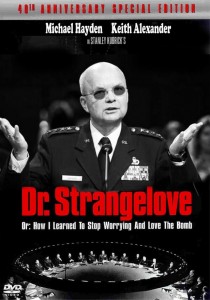50 Years: That Day, JFK and Today
 Where were you fifty years ago today? If you were old enough to remember at all, then you undoubtedly remember where you were on Friday November 22, 1963 at 12:30 pm central standard time.
Where were you fifty years ago today? If you were old enough to remember at all, then you undoubtedly remember where you were on Friday November 22, 1963 at 12:30 pm central standard time.
I was at a desk, two from the rear, in the left most row, in Mrs. Hollingshead’s first grade class. Each kid had their own desk, and they were big, made out of solid wood and heavy. They had to be heavy, of course, because they were going to protect us when we ducked and covered from a Soviet nuclear strike. There were, as there were in most elementary school classrooms of the day, a large clock and a big speaker on the wall up above the teacher’s desk.
I can’t remember what subject we were working on, but the principal’s voice suddenly came over the loudspeaker. This alone meant there was something important up, because that only usually occurred for morning announcements at the start of the school day and for special occasions. The voice of Mr. Flake, the principal, was somber, halting and different; perhaps detached is the word. There was a prelude to the effect that this was a serious moment and that the teachers should make sure that all students were at their desks and that all, both young and old, were to pay attention.
There had occurred a tragic and shocking event that we all needed to know about. Our attention was required.
Then the hammer fell and our little world literally caved in.
President John Fitzgerald Kennedy had been assassinated. Shot and killed in Dallas Texas. Then without a moment’s pause, we were told that the nation was safe, Vice-President Johnson was in charge, the government was functioning and that we need not have any concerns about our own safety. We were not at war.
Twenty four some odd little hearts stopped, plus one from Mrs. Hollingshead. You could literally feel the life being sucked out of the room like air lost to a vacuum. Many of us began looking out the window, because no matter what Mr. Flake said, if our President was dead, we were at war and the warheads were coming. They had to be in the sky. They were going to be there.
Unlike the hokey color coded terror alerts, ginned up fear mongering of Bush/Cheney, Ashcroft and Ridge, and today the terroristic fearmongering of Keith Alexander, James Clapper, Mike Rogers and Dianne Feinstein, things were dead nuts serious at the height of the cold war. If President Kennedy had been killed, we were at war; the missiles were on their way. Had to be. Looking back, the school officials and teachers had to have been as devastated and afraid as we were, yet they were remarkable. They kept themselves in one piece, held us together, talked and comforted us into calm.
We had not been back in class from lunch break for long; it was still early afternoon in the west. Before the announcement was made, the decision by the school officials had been made to send us home. The busses would be lined up and ready to go in twenty minutes. Until then there would be a brief quiet period and then the teachers would talk to us and further calm the situation. Then off we would go to try to forge a path with our families, who would need us as much as we Read more →




